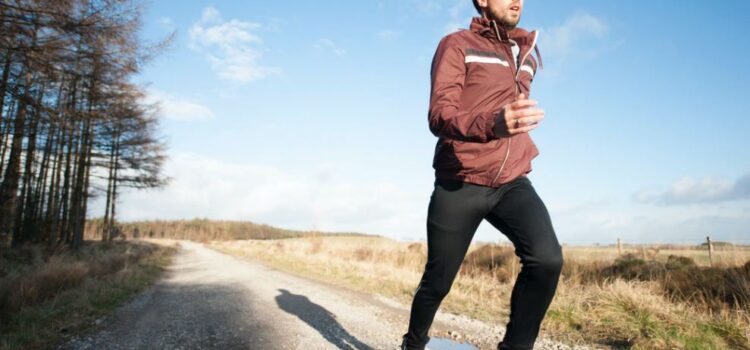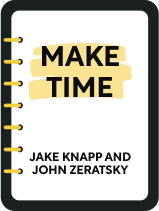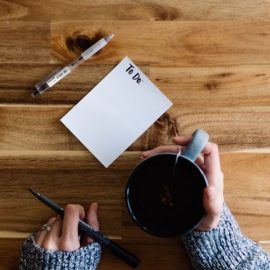

This article is an excerpt from the Shortform book guide to "Make Time" by Jake Knapp and John Zeratsky. Shortform has the world's best summaries and analyses of books you should be reading.
Like this article? Sign up for a free trial here .
Are you constantly feeling tired? Do you need to gain more energy?
In Make Time, Jake Knapp and John Zeratsky give self-care tips that will help keep you energized. These tips include eating smarter, relaxing, when to drink caffeine, and more.
Keep reading to learn how to gain more energy throughout the day.
Create Energy Through Self-Care
If you have a goal, you’ll still have a hard time pursuing what’s important if your body and mind don’t have the energy to engage. Many of us spend a lot of our time feeling beaten down and exhausted.
Knapp and Zeratsky say that this is because the human body isn’t designed for our modern, sedentary, staring-at-screens lifestyle. They argue that in some ways, we were all better off as hunter-gatherers. Technology has brought us many wonders that we’d never dream of giving up (not to mention health care), but the evolution of our bodies has been unable to keep pace with the changes in lifestyle that have occurred since the agricultural revolution.
Knapp and Zeratsky suggest that in order to bring energy to your Focus, you need to take steps to align yourself with the active way of life that your body and mind are designed for. They give guidelines so you can learn how to gain energy and give your Focus your all.
1. Move Around
Knapp and Zeratsky reject the idea of grueling, exhausting workout routines. Instead, they argue that you can benefit from a mere 20 minutes of exercise per day. Walking is perfect—it helps warm up your mind, and you don’t even have to add it to your to-do list; you can find opportunities that are already there. You can walk at least part of the way to your job, choose to take the stairs over the elevator, or simply park farther away from the grocery store when you’re shopping.
You may already have your own workout routine, but perhaps you find it hard to squeeze an hour-long workout at the gym into your schedule. In this case, time may not be as much of a barrier as you think. The authors point to research that shows that short, high-intensity workouts are very beneficial as well.
2. Eat Smart
It’s been well established that making healthier food choices gives you a longer energy boost than relying on sugar, processed foods, and caffeine. However, Knapp and Zeratsky admit that diets are disheartening, difficult, and hard to stick to. Plus, among the deluge of different diet crazes, it’s hard to keep up with what’s healthy and what isn’t.
The authors recommend following the most basic nutritional common sense: eat non-processed food, in reasonable amounts, at appropriate times. They suggest choosing mostly fruits and vegetables, and planning your meals with a salad as the main feature. When you snack, eat fruits and nuts instead of processed sugar, and only when you’re hungry—not when you’re bored.
3. Caffeinate Wisely
A lot of us rely on coffee, tea, or caffeinated soda as a pick-me-up to get us through the day. There’s a catch to caffeine, though—you don’t really gain more energy from it. The authors point out that what caffeine actually does is block the chemical adenosine from reaching the receptors in your brain. Your body’s buildup of adenosine throughout the day is what makes you drowsy, so by blocking it, caffeine merely makes you not feel sleepy.
The authors don’t suggest giving up caffeine, but they do recommend using it strategically. If you’ve scheduled your Focus for the morning or midday, you can time your caffeine intake so it goes into effect right as you’re getting into the swing.
Contrary to common belief, it does no good to take caffeine early in the morning. Your body has metabolized its adenosine overnight, so when you wake up, there’s none left for the caffeine to block. Instead, the authors recommend having your first cup around 10:00 a.m.
Because caffeine takes hours to flush out of your system, your final cup should probably be around 2 p.m. Any caffeine taken later in the day will interfere with your sleep, leaving you groggy in the morning. Everyone’s body processes caffeine differently, so you may have to experiment to determine when you should have your first and last cup.
One trick the authors propose is taking a “caffeine nap” to boost energy and concentration. The idea is to drink a cup of coffee or tea, then nap for 15 minutes. It takes that long for the caffeine to be absorbed, while the nap helps clear adenosine out of your system.
4. Relax During the Day
The human brain wasn’t built for constant stimulation. In order to gain more energy for your Focus, as well as for everything else you have to do, it’s important to take quality breaks from the pressures of work and day-to-day life.
If at all possible, the authors suggest that you take a walk through a place where you’re surrounded by trees. If you can’t get out into nature, at least make time for a walk in a park or a tree-shaded neighborhood street. Any exposure to nature at all has been shown to alleviate stress.
Also, look for ways to interact with people face-to-face, instead of by phone or by email. Doing so boosts energy in ways that social media doesn’t.
6. Sleep Well at Night
Given all the stress of modern life, getting a good night’s sleep may seem like a far-fetched idea. However, the authors point out specific steps you can take to improve your odds of sleeping through the night so you can gain more energy.
First, ban all electronics from your bedroom—phones, tablets, computers, TVs—everything except an alarm clock. Later in the evening, reading is a preferable activity to looking at a screen, and reading on paper is better than reading on a backlit device.
In the hours before bed, the authors suggest that you simulate sundown by turning off or dimming the lights in your home and switching your electronics into night mode. Dimming the lights signals your body that it’s time to start winding down toward sleep. If you find that you’re normally groggy in the morning, there are lamps that can simulate sunrise before you wake by slowly increasing in brightness.
If you do miss out on sleep, don’t try to catch up by sleeping later on the weekend. All this does is confuse your body’s internal clock, in much the same way as jet lag.

———End of Preview———
Like what you just read? Read the rest of the world's best book summary and analysis of Jake Knapp and John Zeratsky's "Make Time" at Shortform .
Here's what you'll find in our full Make Time summary :
- How the current landscape is designed to steal your time and attention
- How to be proactive to take back your time
- Why we were all better off as hunter-gatherers






